Best Starter Mountain Bikes
Spring is almost here and that means back to mountain biking. For some this may mean purchasing a new mountain bike. First off let me say that buying a mountain bike is hard. This is a daunting challenge for even the most seasoned rider, as the number of options is plentiful. If you’re just getting into the sport, choosing the right bike may seem near impossible. Fortunately we’ve got you covered. In this article we’ll walk you through the process of buying a mountain bike and equip you with the knowledge you’ll need to make a decision.
Mountain Bike Categories
At a basic level, mountain bikes are categorized by the style of riding that the bike is meant for. This is usually determined by the geometry and suspension travel of the bike. That is, the lengths and angles of certain aspects of the bike (geometry) and the amount that the bike’s suspension is able to compress (travel). Here are a few basic classifications for mountain bikes:
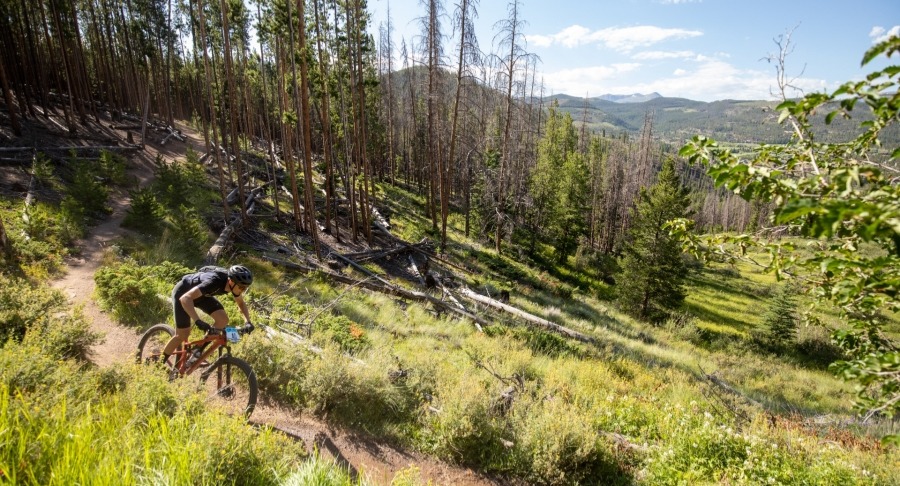
Cross Country (XC): 90-120mm travel
Pedaling performance is the top priority here. These bikes are very efficient on the climbs though generally require more skill to handle, especially during downhill sections. Their geometry puts the rider in an aggressive, over-the-bars feeling position to help get the most out of each pedal stroke. If you want to get into mountain biking for endurance and want the most efficient and lightweight machine for your rides, you may want to try an XC bike.
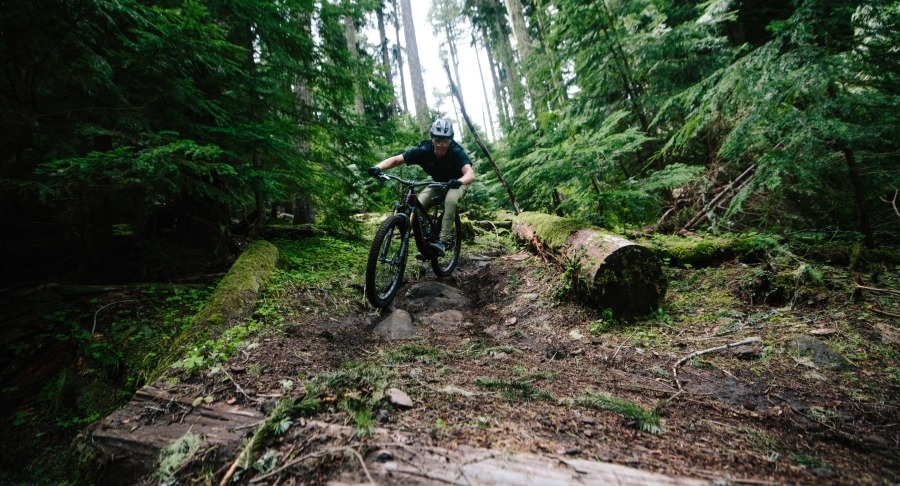
Trail: 120-140mm travel
A “trail” bike is the quintessential mountain bike. They not only climb great but are also very capable on the descents (though not necessarily the best at either). Here you’ll get more suspension to soak up terrain, knobbier tires for better grip, and bigger rotors for improved braking power. The geometry is a bit more relaxed to provide a more comfortable feel compared to an XC bike. If you’re into the uphills but still want to enjoy the occasional drop or jump on the way down, a trail bike may be the rig for you.
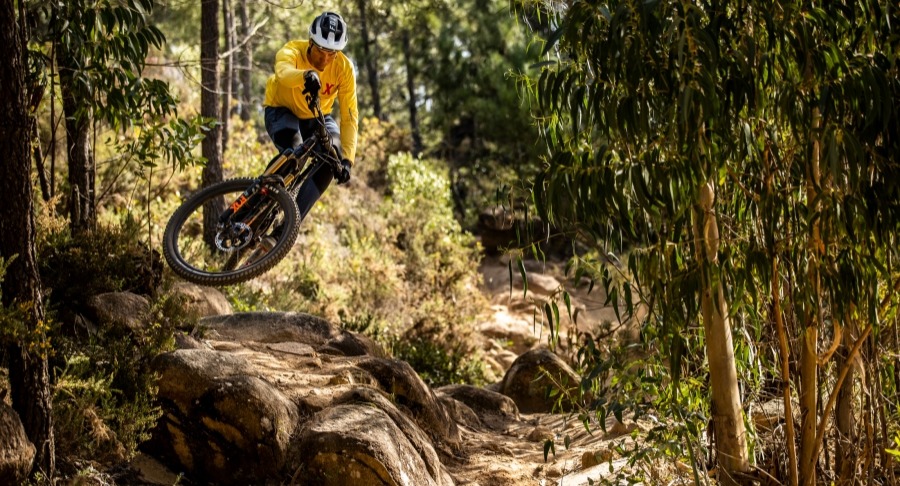
All Mountain/Enduro: 140-180mm travel
Alas we arrive at the king of the mountain - the enduro bike. Think of it as the trail bike’s burlier cousin. These bikes are meant for trails where climbing is necessary, but the downhill is really the best part, as they excel on technical terrain and in the air. The geometry strongly favors descending to climbing, as you are put in an upright position so you can see what’s ahead on the trail. If you tolerate pedaling uphill and the downhills are really the meat and potatoes of your rides, then an enduro bike may be right for you.
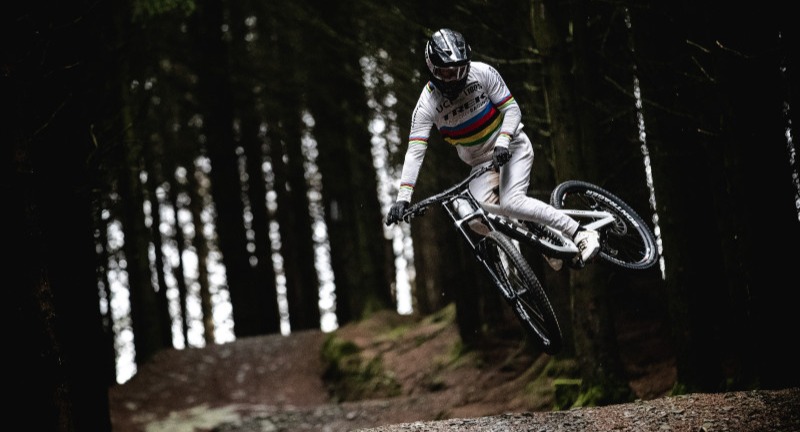
Downhill: 180-210mm travel
Last but not least we have the downhill bike. As the name implies, these bikes are really meant to only be ridden downhill. They’re designed for gnarly terrain, high speeds, big drops, and jumps. Ever watch Red Bull Rampage? Those riders are on downhill bikes, to give you an idea. The geometry on these bad boys tends to be extremely slack to sport a low center of gravity and give you the most confidence on descents. You’ll often see downhill bikes at a bike park or at your local jump park. If you prefer to get to the top of a trail via shuttle or chairlift, and aren’t even remotely interested in pedaling uphill, then you may want a downhill bike.
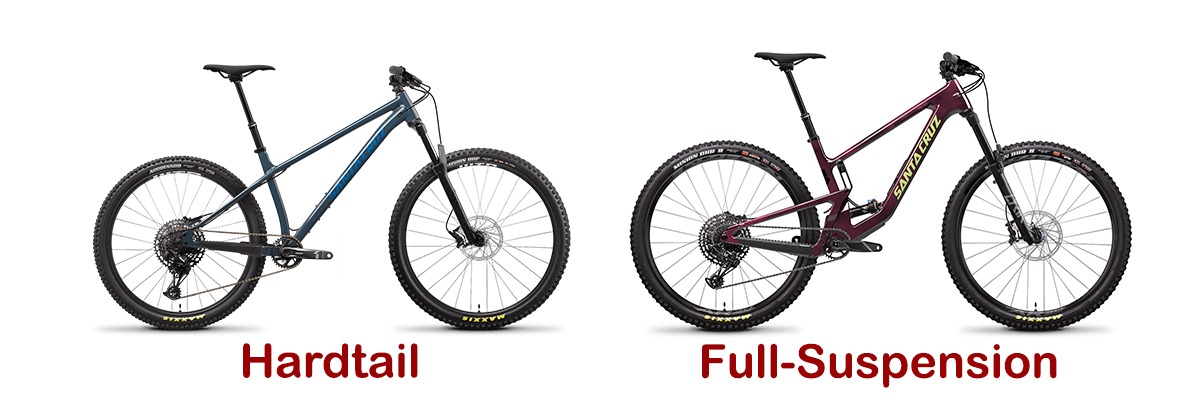
What Size Bike Should I Buy?
Most mountain bikes come in standard sizing. Here are the heights that generally fit well to each size:
Extra-Small (XS): 4’10” to 5’2”
Small (S): 5’2” to 5’6”
Medium (M): 5’6” to 5’10”
Large (L): 5’10” to 6’1”
Extra-Large (XL): 6’1” to 6’4”
Double Extra-Large (XXL): 6’4” & above
Keep in mind that these heights will only give you a good starting point. It’s important to ride the bike before you buy it to really assess the size that’s right for you.
Wheel Size
Mountain bikes come in two standard wheel sizes - 29 in or 27.5 in. There’s also a newer breed of mountain bikes featuring both wheel sizes called mullet or mixed wheel bikes, sporting 29 in the front and 27.5 in the rear. However for the sake of simplicity for those newer riders out there, I’ll stick to talking about the main two sizes. 27.5 inch wheels give a mountain bike a very playful and maneuverable feel, but roll at slower speeds compared to 29 inch wheels. 27.5 wheels are generally suited to shorter riders as these wheels are less challenging to steer and handle on a smaller sized bike. However, they do provide quick acceleration and great handling in technical terrain and tight turns, which is the reason a 6’3” rider like myself still keeps a 27.5 bike around. On the other hand 29 inch wheels provide ample traction, better stability, and carry great rolling speed compared to 27.5. This wheel size is great for climbing and long, fast descents, though they can feel a bit large when the terrain gets tight. All this being said, the choice between a 27.5 in and 29 in wheel mountain bike will ultimately come down to personal preference and comfort. Therefore I recommend trying out both before deciding on what to buy.
Best Mountain Bikes for Beginner Riders
We’ve got the details out of the way, so let’s talk about actual bikes. Choosing the best beginner mountain bike is about finding quality component packages and predictable handling all at a decent price. I’ll start with lower price points and work up from there. The following mountain bikes are great choices for beginners:
Hardtail Mountain Bikes
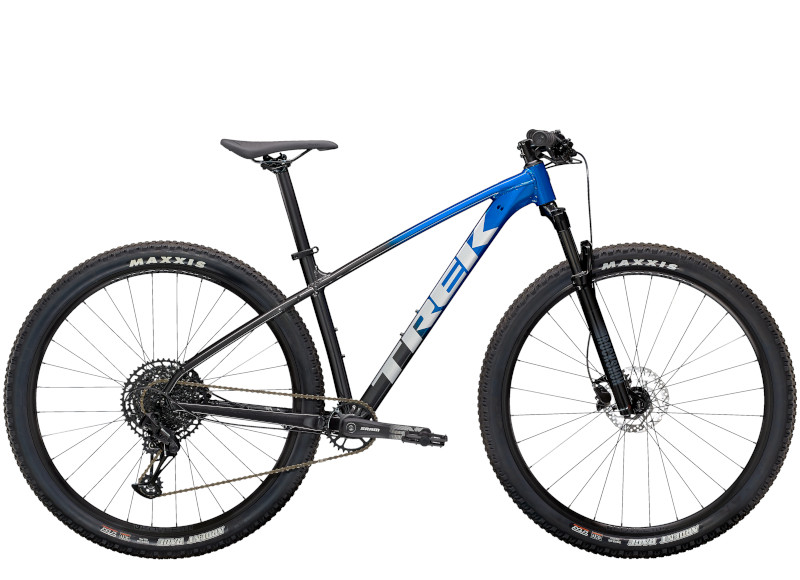
Trek Marlin
$629.99-1,329.99
Marlin is a trail-tough mountain bike that’s ready for any all-terrain adventure, whether you’re exploring the forest on singletrack or navigating the urban jungle. It’s durable, versatile, easy to accessorize, and just as much at home on potholed city streets as on the dirt. I used to hesitate calling this a “mountain bike” but Trek has really upped their game with the Marlin in recent years. The frame has internal routing for the cables, great value components, and lots of features normally reserved only for higher priced bikes. The Marlin also comes in four different build options, so you’re sure to find one that fits your price range.
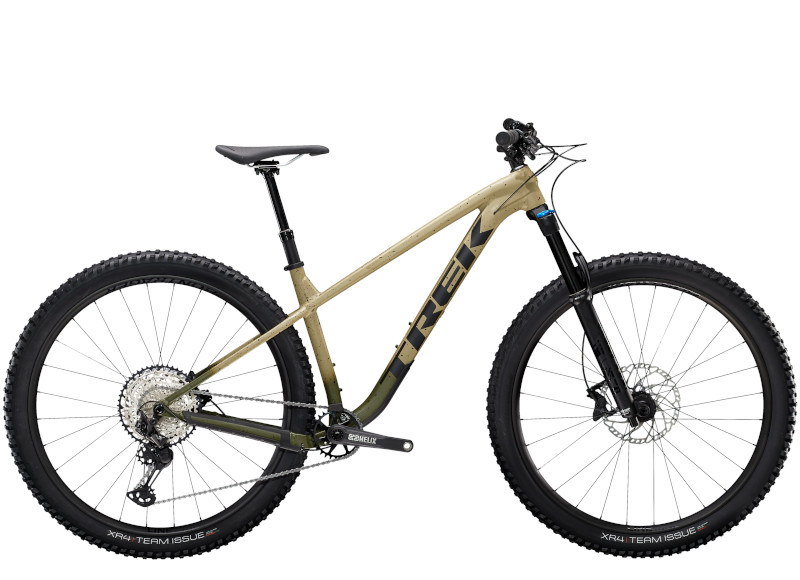
Trek Roscoe
$1,199.99-$2,799.99
Dive into rowdy terrain on the all-new Roscoe. It’s built for a good time from the ground up, and fearlessly flies down the same gnarly trails you’d ride on a full-suspension bike. But because it’s shock-free, you don’t have as much to maintain and the trail feel is unbeatable. Less fuss, more fun—that’s Roscoe. Featuring a 140mm suspension fork and slackened geometry, the Roscoe has a much more relaxed fit than most hardtails and is ready to handle rough and technical terrain. If that wasn’t enough to convince you, it also comes with plus-sized tires for exceptional grip on even the most slippery sections of trail. I’d recommend the Roscoe to anyone who wants a great starter trail bike, at less cost than a full-suspension.
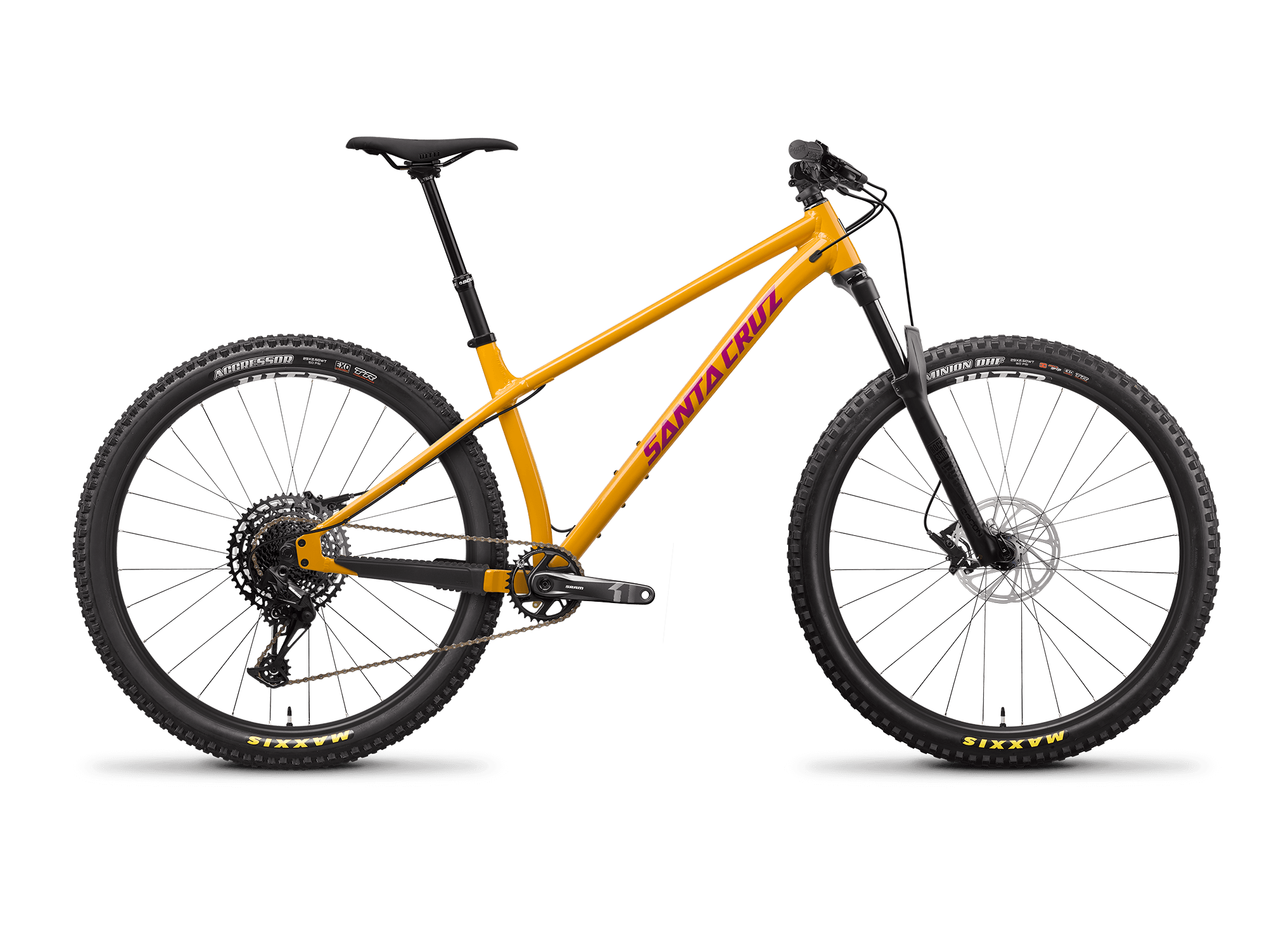
Santa Cruz Chameleon AL
$2,599-$3,749
The Chameleon is a blank canvas, ready to go in whatever direction your imagination takes it. Creativity in wheel size, gearing and component choice make it the perfect muse for freethinkers and freedom seekers alike. Whether 29er or mixed, geared or fixed, multiple major configuration transformations are made easy via the interchangeable dropouts. The low slung top tube and progressive geometry means this bike blends into whatever surroundings you place it. From raucous short-cuts across town to skipping the city altogether. It turns itself to trail exploration with the flip of an Allen key, thanks to the triple-bolt cargo cage mount under the downtube and standard bottle mount within the frame. Whatever the weather, however long the ride, wherever you're going, the Chameleon is so endlessly customizable and adjustable that the only constraint is really your own mind and motivation. The Chameleon is hands-down one of the best and most versatile hardtail mountain bikes on the market. If you’re looking for a do-it-all, swiss army knife of a bike, look no further.
Aluminum Full-Suspension Mountain Bikes
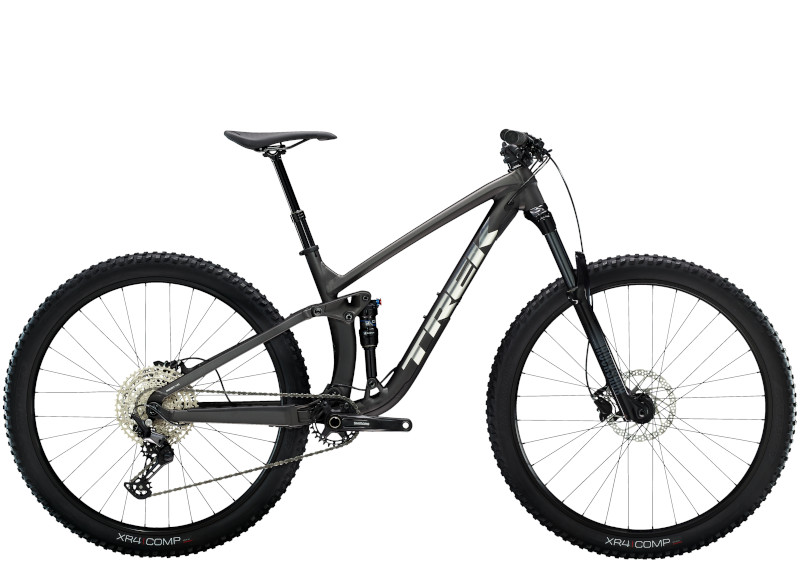
Trek Fuel EX Aluminum
$2,699.99-$3,699.99
If you're ready to go full suspension, and want a versatile trail bike at a great value, Fuel EX may be the bike for you. It's sure-footed, capable, and responsive so you can stay in control no matter where you're riding. It features a sturdy aluminum frame and high quality components at a great price. Fuel EX aluminum models are as good as it gets for your first full-suspension mountain bike.
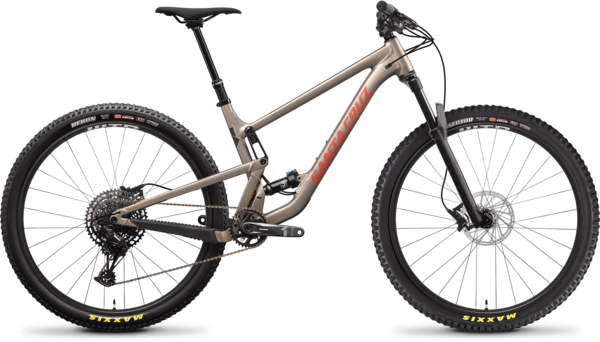
Santa Cruz Tallboy AL
$3,599-$4,199
Tallboy is the kind of bike that makes you sprint while going up, along, over, or down due to the maximum efficiency of the VPP™ design, forward thinking geometry and responsive, lightweight chassis. But because it shares the same engineering principles as longer travel bikes it feels equally at home doing cross-country as it does getting extreme across the countryside.
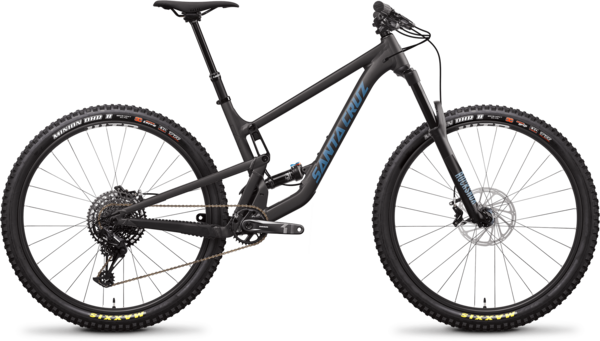
Santa Cruz Hightower AL
$3,799-$5,249
Big on wheels, medium on travel, short on fuss, this is the do-it-all trail bike that does it over and over again thanks to a versatile balance of geo, spec and durability. If you’re not looking for extremes, just something extremely good, the Hightower is your elevator.
Still unsure of what bike to buy?
